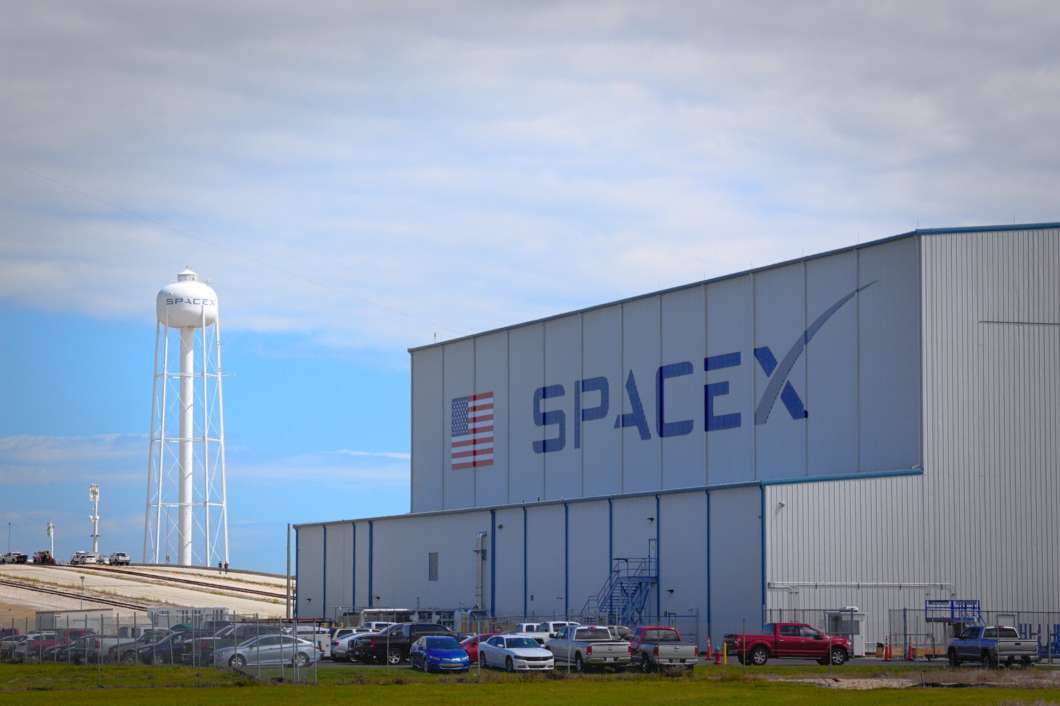
SpaceX is set to launch a fleet of mini-satellites Monday from Cape Canaveral on a Falcon 9 rocket. The launch happening on Veterans Day highlights the role veterans play in the growing aerospace industry.
Earlier this year SpaceX’s lead operations engineer Julia Black counted down a launch sending supplies to the International Space Station. “5-4-3-2-1-,” she counted over the comms loop. “May The Force be with us,” she said as the rocket left the pad on the unofficial holiday “Star Wars Day”.
“It’s pretty exciting,” she said recalling her more than 100 career launches. “Every launch when I go on console, I do not take it for granted.”
Black began her career launching rockets with the Air Force. Like many at SpaceX, she moved into the private sector once she left the military.
Her colleague on the West Coast, SpaceX Vice President Lee Rosen, found himself making the same transition after a two decades long career in the Air Force.
“The chance to influence things on the other side of the fence while continuing to serve the government by getting additional capability for our war fighters and strategic decision makers was really appealing to me,” said Rosen.
A Place for Veterans
SpaceX works with the Department of Defense to launch payloads like GPS and communication satellites for the military. In total, its rockets were certified to compete for National Security Space Launch missions, SpaceX has been awarded nine launches which includes successfully deploying payloads for the Air Force and National Reconnaissance Office.
Thirteen percent of SpaceX’s workforce self-identifies as having previous military service. Veterans make up 22 percent of its Florida workforce, the company’s second largest site by employee population. That number is even higher at the company’s rocket and engine development facility in McGregor, Texas, where 31 percent of employees have a military background.
That’s no surprise to Rosen, who retired as an Air Force Colonel. Those leaving the military still have a desire to serve.
“That’s one of the things that I think makes SpaceX so appealing to the veteran population and why we have a high percentage of veterans here. We can still continue to serve.”
Lead Structures Technician Alyssa Gallegos joined SpaceX after serving in the Navy. She found the company through the military’s Transistion Assistance Program, a service that helps soon-to-be veterans and their spouses transition from military to civilian life.
“It was also really awesome to be able to use the skills that I learned in the military at this job,” she said. “I worked on F-8 [jet aircraft] teams in the military and I just never really thought that those skills would be transferable to building rockets.”
Watching the launch of the first rocket she worked on was transformative.
“It was incredible,” Gallegos recalled. “I was absolutely floored. I had goosebumps, I was ecstatic. It was just one of those amazing accomplishments that really just lasts with you for a really long time.”
SpaceX offers a veterans support group. Gallegos now works with people she worked alongside with in the Navy. Her fiance works at the company and she has no intention of leaving. “We’ve had a child while working here. We’re lifers as they call it.”
NASA also employs a lot of veterans. At Kennedy Space Center, more than 300 of its civil servants come from the military. Public Affairs Officer and Army Reservist Dustin Cammack said it was an easy transition.
“What I like to tell people when I first showed up at Kennedy is that it looked similar. It smelled similar. It tasted similar. There’s a lot of things that felt comfortable. Because it is a government agency, there’s a lot of things that are similar in both.”
Filling a Workforce Gap
Time in the military teaches discipline, leadership and the ability to adapt under pressure — those are all skills that come in handy working at a company defined by its engineering innovation and rapid development.
“We’ve often been referred to as a version of the Special Forces in aerospace,” said Black of the SpaceX engineers. “You have a challenge in front of you and you’re allowed to think outside the box, be innovative and make it happen and bring it across the finish line.
It’s that skill set that is attractive to the many private space companies now calling Florida home. The state has struggled to attract a skilled workforce to keep up with the demand of a growing aerospace economy which includes private companies like Blue Origin and OneWeb Satellites.
“The demand for skilled talent in the growing commercial space marketplace is very high,” said Space Florida’s Dale Ketcham. “Much of the progress that we’ve made in developing that hands on manufacturing in the state has been geared towards tapping into the pool of veteran capability.”
Continuing to Serve
The satellites standing ready to launch from Cape Canaveral will be part of a fleet to blanket the globe with high-speed internet access. It’s a ground-breaking technology that has all kinds of applications. The Air Force is testing the fleet to use as an internet service for military planes.
Julia Black will once again be on console for the launch. The satellites she’s helping launch into space could soon help the military — and she’s launching them on Veterans Day.
“It’s like icing on the cake. With regards to being a patriot and knowing that you can still contribute even though I hung up the uniform a couple years ago.”

